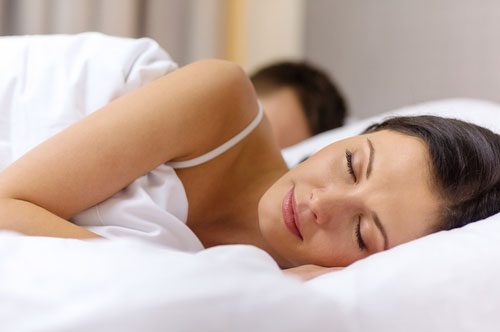Sometimes, it’s normal to experience fatigue during the day. Maybe you’ve been working late to hit a big project deadline or you’re caring for young children. But what if you remove those factors from the picture and you’re still chronically tired? It’s possible that a condition called obstructive sleep apnea is robbing you of quality sleep, leaving you drowsy during the day.
Sleep apnea is a common but potentially dangerous sleep disorder, marked by “episodes” of breathing disruptions throughout the night. Excessive snoring that wakes you or your partner is a common symptom of obstructive sleep apnea. It’s usually what compels people to get tested for the condition.
If you’ve been unsuccessfully trying to determine the cause of your tiredness, consult with the experts at Sleep Better Lexington. You’ll receive specialized care to help you get an accurate diagnosis and prompt treatment for obstructive sleep apnea — so you can get back to the good night’s rest you deserve!
Read on for more information about obstructive sleep apnea. Then, call us our Lexington, KY office at 859-721-2072 to schedule an appointment.
How Does Obstructive Sleep Apnea Interfere With Quality Sleep?
When you have obstructive sleep apnea, your sleep is interrupted dozens of times a night when your airway periodically becomes partially or completely blocked. Oftentimes, your tongue falls to the back of your mouth when you’re lying down, or the tissue toward the back of your throat collapses in. This prevents you from getting the oxygen you need.
Most of these episodes are brief and some end with the sleeper jolting awake, possibly gasping for air. Sometimes, partial blockage of the airway results in the thunderous snoring that is often associated with obstructive sleep apnea.
These episodes can happen dozens of times a night, and they prevent you from getting quality sleep.
Some symptoms of obstructive sleep apnea include:
- Excessive snoring that wakes you or your partner
- Moments where you stop breathing during sleep
- Frequently waking up abruptly, feeling short of breath or as if you’re choking
- Dry mouth or sore throat upon waking
- Morning headaches
- ADHD-like symptoms
- Irritability
- Excessive sleepiness during the day
It’s also important to note that certain groups are more at risk of obstructive sleep apnea than others. Those include men, overweight individuals, adults older than 40, and those with a genetic predisposition to the condition. Both males and females, as well as people of all sizes and ages, can experience sleep apnea.
Is Obstructive Sleep Apnea Dangerous?
Unmanaged, yes. Sleep apnea has been linked to serious health complications like heart disease and stroke. That’s because when you stop breathing in your sleep, even momentarily, your body releases the stress hormone adrenaline. This causes your blood pressure to rise. Experiencing sleep apnea episodes throughout the night can put undue stress on your heart.
But beyond that, sleep apnea has also been linked to an increased likelihood of workplace injuries and traffic accidents. In fact, the National Transportation Safety Board recently said that sleep apnea was the “probable cause” in 10 highway and rail accidents the agency has investigated in the last 17 years.
How Is Obstructive Sleep Apnea Treated?
In the past, obstructive sleep apnea has most often been treated with a continuous positive airway pressure (or CPAP) device. These devices consist of a mask that you wear throughout the night. The mask attaches to a machine that pushes air into your nasal passage to help keep the airway open.
CPAP machines are effective at alleviating the symptoms of obstructive sleep apnea — but only if you’re wearing it every night. Many people find that CPAP machines are uncomfortable to sleep in, so they don’t use them as directed.
That’s why at Sleep Better Lexington, we prefer to treat obstructive sleep apnea with a simple dental device. It’s easy! The oral appliances basically looks and functions like an athletic mouthguard that you pop in right before bedtime. The device slightly adjusts the position of your jaw during sleep to prevent airway blockages.
How Is Obstructive Sleep Apnea Diagnosed?
At Sleep Better Lexington, we’ll have you fill out a sleep apnea questionnaire to give us some basic background about the symptoms you’re experiencing. If it looks like sleep apnea is a distinct possibility, we’ll then talk with you in person about your experiences. We may also provide you with a sleep screening you can do in the privacy of your own home.
Depending on those results, we’ll either refer you to your primary care physician or a trusted sleep specialist we work with to have you take a sleep test at a sleep center.
Sleep More Soundly With Obstructive Sleep Apnea Treatment
At Sleep Better Lexington, we understand that without quality sleep, it’s nearly impossible for you to feel and function your best. That’s why our goal is to provide you with personalized care and proven sleep apnea solutions!
Call us today at 859-721-2072 or use our online form to request an appointment.

